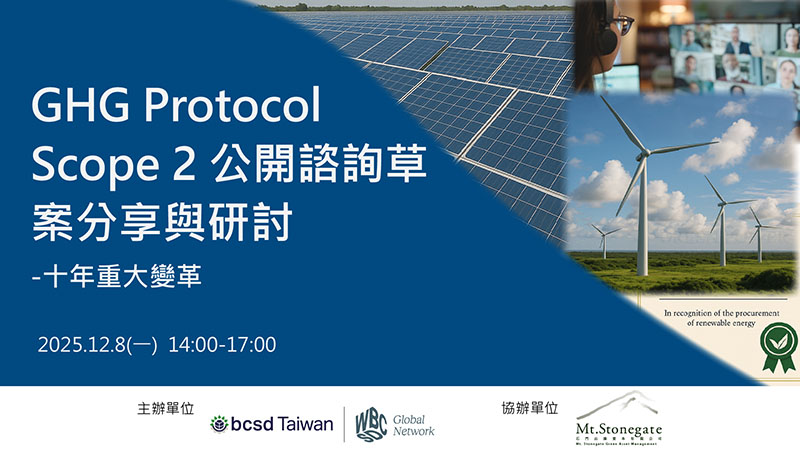Driving Low-Carbon Future – Chinese Solutions on Supply Chain Decarbonization and GEC Market Development” Seminar Successfully Held in Shanghai, China
- Jul 23, 2025
- 4 min read
On July 3, 2025, Mt.Stonegate successfully hosted the themed seminar “Driving Low-Carbon Future - Chinese Solutions on Supply Chain Decarbonization and GEC Market Development” in Shanghai. With increasing decarbonization demands and China’s national “Dual Carbon” strategy gaining momentum, businesses are actively pursuing clearer and more actionable pathways toward low‑carbon transformation. Concurrently, China’s green certificate market is undergoing major structural reform.
With the formal exit of I‑REC, China’s Green Electricity Certificate (GEC) has emerged as the sole official instrument for representing the environmental attributes of renewable electricity within the country.
In this context, the seminar highlighted the urgent need to refine GEC procurement strategies and accelerate the development of low-carbon supply chains. Experts from the China Carbon Neutrality Action Alliance (Shanghai Environment and Energy Exchange), CDP (Carbon Disclosure Project) China, and The Climate Group China shared insights spanning policy frameworks, market developments, and practical approaches to support corporate decarbonization.

Peng Feng, Shanghai Environment and Energy Exchange: Carbon Strategies under the Dual Carbon Policy
Peng Feng, Director of the Shanghai Environment and Energy Exchange and Secretary-General of the China Carbon Neutrality Action Alliance (CCNAA), highlighted how China’s “1 + N” carbon policy framework has evolved from high-level design to more detailed guidance at the sector and enterprise levels. He emphasized the need for companies to establish robust carbon management systems, including emissions accounting, target setting, and carbon asset oversight. Peng pointed out that supply chain emissions - classified as Scope 3 - remain the most complex and pressing challenge.
To address this, he proposed two strategic approaches: enabling emissions reductions on the client side through low-carbon products and services, and driving reductions across the supply chain by equipping suppliers with technical support and incentive mechanisms. He also noted that businesses can generate additional value by converting in-house emissions reduction efforts into voluntary carbon credits, such as China Certified Emission Reductions (CCERs) or carbon-inclusive programs.

Gui Xuan, CDP China: Corporates Supply Chain Decarbonization and Environmental Disclosure
As an accredited CDP Solution Provider, Mt. Stonegate invited Gui Xuan, Head of Disclosure and Accredited Solutions Provider (ASP) Greater China at CDP, to deliver a keynote address. Gui pointed out that upstream Scope 3 emissions are, on average, twenty-six times higher than a company’s direct operational emissions, yet only about thirty percent of firms have identified corresponding risks within their supply chains.
With international frameworks such as IFRS S2 and the European Sustainability Reporting Standards (ESRS) coming into effect, alongside evolving domestic regulatory expectations, integrating supply chain considerations into broader environmental risk management is becoming increasingly relevant for companies. Gui then outlined CDP’s phased supplier-engagement model: data collection forms the foundation, structured feedback drives improvement, and targeted actions ultimately deliver emissions reductions. She added that CDP’s 2024 questionnaire is now fully aligned with leading global disclosure frameworks and includes a streamlined version designed to help small and medium-sized enterprises report both efficiently and effectively.

Hui Yuming, The Climate Group China: Way towards Sustainable Development of Chinese Renewable Energy
Hui Yuming, Chief Representative and Executive Director of The Climate Group China, joined the seminar virtually to share recent progress under the RE100 initiative. As of 2024, 424 global companies had become RE100 members. In China, these companies collectively consumed 77 terawatt-hours (TWh) of electricity, with the renewable share increasing from 50% in 2022 to 59% in 2024. This upward trend highlights the rapid advancement of China’s green power transition. While Hui acknowledged that challenges remain in China’s green power procurement landscape - such as supply constraints and relatively high costs - he noted that continued improvements in policy frameworks and market mechanisms have contributed to a marked increase in the international credibility of China’s green certificates.

Ling Tiantai, Mt.stonegate Green Asset Management: From GEC System Optimization to Market Balance Evolution - How Can Companies Seize the Momentum
Ling Tiantai, Project Analyst at Mt. Stonegate Green Asset Management, delivered an in-depth analysis of recent developments and future trends in China’s Green Electricity Certificate (GEC) market. He noted that with the implementation of the “sustainable development pricing mechanism” for renewable energy, projects covered under this mechanism are no longer eligible to issue tradable GECs—a shift that is expected to significantly reshape the market’s supply structure.
On the demand side, both voluntary corporate procurement and mandatory consumption requirements are continuing to grow, gradually changing the dynamics of market balance. In response to these shifts, Ling suggested that companies dependent on unbundled certificates consider establishing mid- to long-term procurement channels to secure supply stability. For those participating in green power trading, staying informed about evolving regional policies will be key to adjusting procurement strategies in a timely manner.
He also encouraged energy-intensive and internationally active companies to explore more flexible and forward-looking approaches, such as power purchase agreements (PPAs). As international frameworks like the EU Carbon Border Adjustment Mechanism come into force, Ling emphasized the importance of combining short-term responsiveness with long-term strategy to stay ahead in the low-carbon transition.

The seminar concluded with a lively Q&A session, where speakers and corporate participants exchanged perspectives on key topics including carbon market developments, green certificate procurement strategies, and supply chain emissions reduction. Mt. Stonegate Green Asset Management is committed to providing one-stop solutions that support global sourcing of renewable electricity and high-quality carbon credits, helping companies advance their low-carbon transformation goals.





![【2026.01.14|台灣研討會】2026 脫碳行動論壇:突破市場挑戰・共創未來藍圖[Jan 14, 2026 | Taiwan Seminar] 2026 Decarbonization Action Forum: Breaking Market Barriers, Building a Future Blueprint](https://static.wixstatic.com/media/c14295_65fc6447b44b48128abae35baa11bee9~mv2.jpg/v1/fill/w_600,h_800,al_c,q_85,enc_avif,quality_auto/c14295_65fc6447b44b48128abae35baa11bee9~mv2.jpg)

Comments